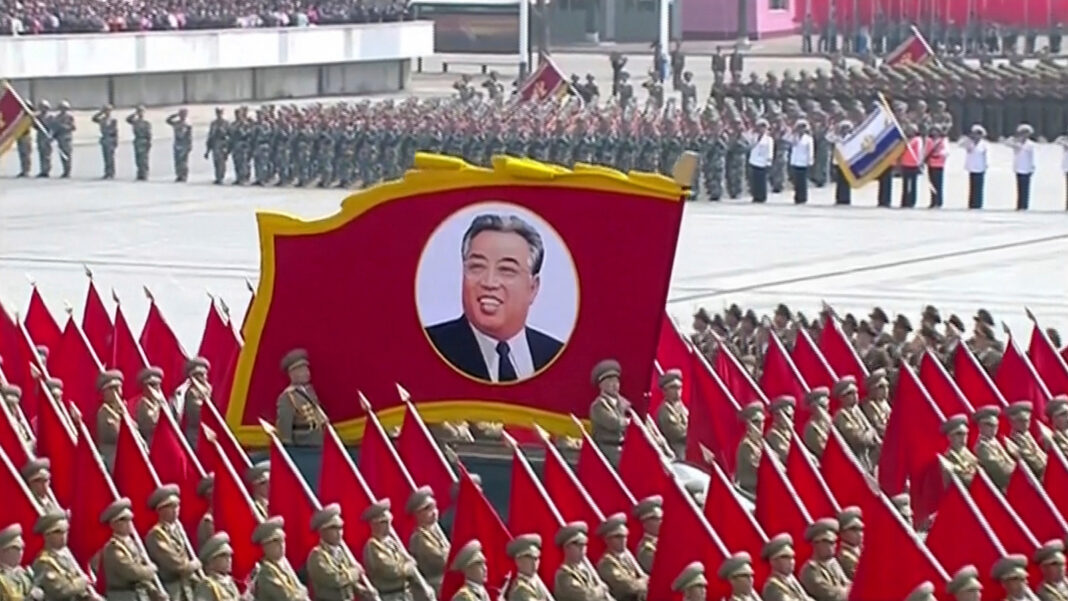Was China kept in loop by North Korea about its launch of ballistic missiles, including one that flew over Japan without warning? Whatever may be the truth, firing of seven missiles in the past two weeks by North Korea, is seen as a slap on the face of Beijing as the launches took place when the Communist Party of China is scheduled to begin its weeklong, once in five-year National Congress on October 16.
To ensure that the National Congress, where Xi Jinping will be declared President third time for the five-year term, goes off successfully, China desires peace in its neighbourhood. It called off high-voltage military drills surrounding Taiwan and withdrew troops from the Himalayas (though not comprehensively). All this, Beijing did to send a message to the world that it wanted no tension to flare up in and around China during the National Congress, considered to be very important as it will provide a glimpse to the East Asian country’s forthcoming move on political, diplomatic, economic, and strategic fronts.
But North Korea under the leadership of Kim Jong Un showed that there was no compromise when it came to displaying its military strength in the Korean Peninsula. Military experts fear that the area will witness a further escalation of tension as North Korea is preparing for a nuclear test, a first by Pyongyang in nearly five years—a move that could rile China since it would provoke the US, South Korea, and Japan to strengthen their military position in the region.
China is already in cold fears about its encirclement by the US and its allies in the Indo-Pacific region. In the last 10 years, China has though modernised its armed forces with it possessing the world’s largest navy by fleet size (as per a US Congressional Research Service Report) and the world’s second largest operational air force having at least 600 4th generation fighters and substantial number of 5th generation fighters like J-20 and FC-31/J-31.
Still China lacks military wherewithal to really challenge the US and its partners in the Indo-Pacific region. The Russian military’s underperformance in its fight against Ukrainian forces in the ongoing war in the East European country is keenly watched by the Chinese military leadership who is said to be evaluating its military’s capability, given that it has not fought any battle since 1979. China’s People’s Liberation Army’s last battle was with seasoned and highly-motivated Vietnamese forces who had successfully wrecked Chinese invasion 40 years ago. In early 2018, the PLA Daily in an article warned that “decades of peace and prosperity have exacerbated corruption and undermined readiness of Chinese armed forces.”
Some experts cite China’s inadequate military preparedness as the reason for it to push a pause button to its aggression in the Taiwan Strait. Even as this is an issue of an analysis, China would never like Western military might to have a dominating presence in the Korean Peninsula, which has a very high importance in China’s security mechanism. Peninsula shares a long border with China’s industrial heartland in the country’s north-eastern provinces.
To assure that Chinese economic and political interests in the region are not threatened, Beijing wants North Korea to avoid sabre-rattling. But North Korea has apparently remained insensitive to China’s feelings and has undertaken ballistic missiles’ testing at the time when Beijing avoids being distracted by tension at its doorstep. On October 8 also, Pyongyang carried out 7th missile test on the eve of the 77thanniversary of the founding of North Korea’s ruling Workers’ Party.
This was again the solid-propellant short-range ballistic missile (SRBM), placing the US and its allies Japan and South Korea within striking distance. Rattled by such moves of North Korea, the US and South Korea relaunched their joint naval drills in the Korean Peninsula. The US redeployed the 103,000-tonne aircraft carrier Ronald Regan on October 8, setting alarm bells ringing in Beijing. Showing signs of apparent nervousness, China’s Foreign Ministry Spokesperson Mao Ning said, “We hope relevant parties will address each other’s concerns in a balanced way through dialogue and consultation and create conditions for the resumption of meaningful dialogue.”
But since North Korea is preparing for nuclear tests and that too in opposition to China’s understanding of the situation in the Korean Peninsula, Beijing wants Pyongyang to stop such tests at any cost. In fact, by no means China wants war or instability in the region. It has repeatedly asked Pyongyang to exercise restraint and refrain from any actions that might escalate the tension in the Peninsula. Yet this time, China has so far not dispatched its special emissary to North Korea even as it remains Beijing’s most important ally and accounts for roughly 90 per cent of its foreign trade. This is surprising strategic experts across the world as China had immediately sent Song Tao, the then head of the CPC’s External Affairs Department in November 2017 to North Korea after it had carried out a flurry of missile tests. And these tests were launched in the year China had held its 19th National Congress of the CPC. North Korea had launched 23 missiles throughout 2017, including two over Japan. It had also conducted a nuclear test in the same year.
Meaning is clear: Pyongyang wants China, a veto-wielding UNSC member to play a role for North Korea in removing the sanctions regime on it. In fact, it wants to be taken seriously by China, the US, and its alliance partners. Since the US is in no mood to give any concession to Pyongyang and rather ready to apply more coercive regime against the reclusive hermit nation, North Korea is seeing in ratcheting up of tension in the Peninsula as means to pressurise China to play a meaningful role for it in removing its international isolations. But is China capable of doing so, given that trust between Beijing and the US and other key international players has widened beyond repair since 2019.

